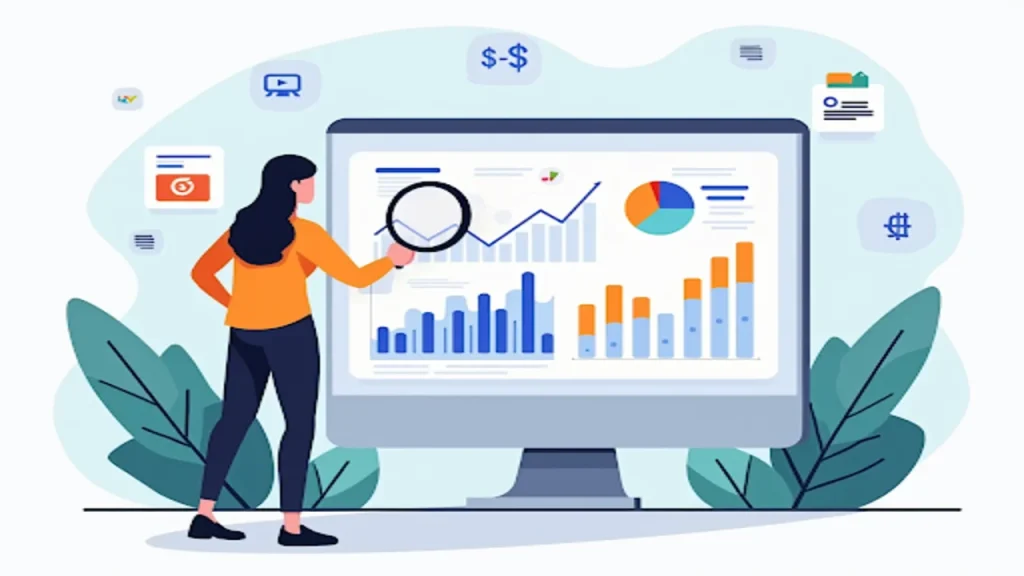Achieving a coveted position on Google’s first page is the ultimate goal for businesses and content creators striving for enhanced online visibility and increased organic traffic. How to Get on First Page of Google Search David Aziz, a renowned expert in digital marketing and SEO strategies, has pioneered approaches that consistently deliver results. By combining data-driven techniques with creativity, Aziz offers a pathway to unlocking Google’s first-page success.
Who is David Aziz and Why Follow His Approach?
David Aziz is a trusted name in the world of search engine optimization (SEO) and digital marketing. Known for his innovative methods, he has helped numerous businesses achieve visibility on Google’s first page. Aziz emphasizes that ranking on Google is not about shortcuts or black-hat practices; instead, it requires a thoughtful combination of strategic keyword optimization, quality content creation, and advanced technical expertise.
With years of experience, David Aziz has become a sought-after advisor for organizations looking to improve their search engine presence. His strategies are particularly effective because they cater to user intent, ensuring that businesses attract the right audience while staying ahead of their competitors.
Mastering the Path to Google’s First Page

Comprehensive Keyword Research and Optimization
Keyword research is the cornerstone of any successful SEO strategy. David Aziz underscores its importance in laying the foundation for high search rankings.
How to Identify High-Value Keywords
To rank effectively, you must target keywords that strike a balance between search volume and competition. Tools like SEMrush and Ahrefs help uncover terms that align with your business goals.
Understanding User Intent
David Aziz stresses the importance of matching keywords with user queries. This means differentiating between informational, navigational, and transactional intent to ensure your content meets audience expectations.
Incorporating Keywords Naturally
Avoid keyword stuffing, which leads to penalties. Instead, integrate keywords organically in titles, headers, and the body text for a seamless reader experience.
Long-Tail Keywords for Niche Traffic
Focusing on specific, long-tail keywords can attract a more targeted audience. Aziz recommends pairing them with content that addresses unique pain points.
Utilizing LSI Keywords
Latent Semantic Indexing (LSI) keywords enhance your content’s relevance by including synonyms and related terms, further boosting visibility.
Creating High-Quality, Engaging Content
Content is king, but only if it delivers value to your audience. David Aziz advocates for content that educates, entertains, and engages.
Crafting Comprehensive Content
Content should be in-depth and address multiple aspects of a topic. Longer posts often rank better because they provide more value.
Incorporating Visuals for Engagement
Videos, infographics, and images increase time-on-page metrics, signaling to Google that your content is engaging.
Updating Content Regularly
David Aziz recommends keeping your articles fresh by updating them with the latest data and insights, ensuring they remain relevant.
Addressing Common Questions
FAQs enhance content depth and address specific queries, making your page more appealing to readers and search engines.
Encouraging User Interaction
Features like comment sections or interactive tools increase engagement and improve rankings.
Optimizing On-Page SEO
On-page SEO involves fine-tuning elements directly on your website. David Aziz outlines essential steps for optimization.
Creating Compelling Title Tags
A good title should be concise, descriptive, and keyword-rich. Use action words to draw clicks.
Writing Engaging Meta Descriptions
Meta descriptions provide a snapshot of your content. Ensure they are enticing and include your primary keyword.
Using Proper Header Structure
Header tags like H1, H2, and H3 help organize content. This structure improves readability and aids search engines in parsing your page.
Optimizing Image Alt Text
Alt text describes images to search engines, improving their accessibility and contributing to your SEO efforts.
Internal Linking
Linking to other relevant pages on your site helps users navigate easily and keeps them on your site longer.
Technical SEO Enhancements
Technical SEO ensures your website meets the requirements of search engine crawlers.
Mobile Optimization
With most searches occurring on mobile devices, ensuring your site is mobile-friendly is crucial.
Improving Page Speed
David Aziz emphasizes the importance of site speed. Compress images and minimize unnecessary code to improve loading times.
Implementing Structured Data
Structured data, like schema markup, enhances search engine understanding of your content, potentially earning rich snippets.
Ensuring Crawlability
A well-structured sitemap and proper use of robots.txt files ensure that search engines can effectively crawl your website.
Fixing Broken Links
Broken links disrupt user experience and negatively impact rankings. Regularly audit and fix them.
Building High-Quality Backlinks
Earning backlinks from reputable websites signals to Google that your content is authoritative.
Guest Blogging
Writing for other platforms allows you to link back to your site, driving traffic and building credibility.
Influencer Outreach
Collaborate with influencers in your niche to gain exposure and earn quality backlinks.
Creating Linkable Assets
Infographics, whitepapers, and case studies are examples of content worth linking to.
Monitoring Backlink Quality
Use tools like Moz to analyze the quality of your backlinks and disavow any harmful ones.
Participating in Industry Forums
Contributing valuable insights on forums can lead to natural backlinks and increased visibility.
Enhancing User Experience
A seamless user experience is essential for high engagement and lower bounce rates.
Improving Site Navigation
Ensure your site is easy to navigate with intuitive menus and clear calls-to-action.
Responsive Design
Your website should adjust seamlessly across devices to cater to all users.
Minimizing Pop-Ups
While pop-ups can be useful, excessive use can irritate users and increase bounce rates.
Focusing on Accessibility
David Aziz highlights the importance of designing websites that are accessible to all, including those with disabilities.
Encouraging Fast Interactions
Features like live chat and instant responses improve engagement and user satisfaction.
Comparison Table: Top Competitors’ SEO Strategies
| SEO Strategy | David Aziz | Neil Patel | Brian Dean |
| Keyword Research Tools | SEMrush, Ahrefs | Ubersuggest | Google Keyword Planner |
| Content Strategy | Comprehensive and engaging | Data-driven | Skyscraper Technique |
| Backlink Focus | Quality over quantity | Balanced approach | Authority links |
| Technical SEO Priorities | Mobile-first, speed optimization | Speed and UX | Structured data and schema |
| User Experience Enhancements | Accessibility, navigation focus | User intent optimization | Clear and minimalistic design |
FAQs
1. How often should you update SEO strategies?
SEO requires constant monitoring. David Aziz suggests revisiting strategies every quarter.
2. Can small businesses benefit from David Aziz’s methods?
Absolutely. His scalable strategies are ideal for businesses of all sizes.
3. How important are backlinks in Aziz’s SEO plan?
Backlinks are critical, but their quality is more important than quantity.
4. What tools does Aziz recommend for tracking performance?
He suggests using Google Analytics, SEMrush, and Ahrefs.
5. Does David Aziz focus on local SEO?
Yes, particularly for businesses aiming to dominate regional search results.
Also Read: Lighten the Load: Exploring the Impact of Humorous Funny Get Well Cards on Recovery

![Did My Cat Know He Was Being Put to Sleep? [Detailed Explanation] 5 Did My Cat Know He Was Being Put to Sleep](https://filmyhuts.com/wp-content/uploads/2023/07/Did-My-Cat-Know-He-Was-Being-Put-to-Sleep-1024x576.png)
